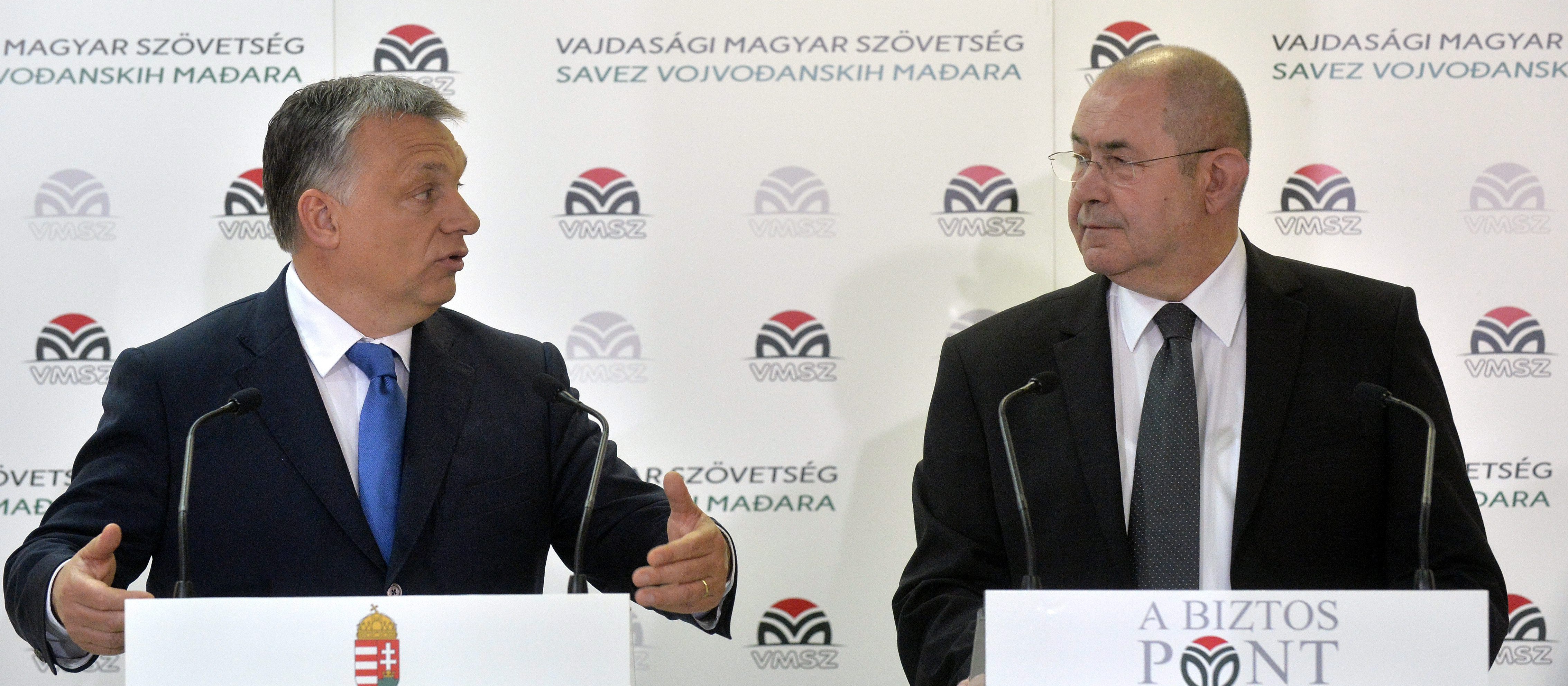
At a press conference held after the meeting, the Prime Minister said that this programme is equally beneficial for the Serbs, the Hungarians living there, Hungary and the EU. Mr. Orbán welcomed the fact that the programme was developed by the VMSZ, and the Government only needed to offer its support. This is better than trying to imagine in Budapest what would be in the best interests of those living in some other part of the Carpathian Basin, he said. With this initiative the path to be followed in the future has also been shown to other Hungarian communities, and the initial results are promising, he pointed out.
The Prime Minister also said that he arrived in the city in the midst of an election campaign, and while the leader of a neighbouring country must not interfere in an electoral contest, he may encourage people to vote. At the same time there is a Hungarian party there, and therefore he called upon the Hungarians living there to vote and to support the VMSZ, which is a fixed point of reference and the guarantee of a secure future in Vojvodina.
The Prime Minister said that his government thinks in terms of the entire nation, and its responsibility also extends beyond that which it owes to people living in the territory of Hungary. Governments which operate on a nationally-oriented basis are also accountable to electors beyond the borders for the way in which they use the opportunities which present themselves. The Government is making every effort to use these opportunities well, and is perhaps doing a good job, he added.
Mr. Orbán expressed the hope that thousands of contracts will be signed as part of the economic development programme. This will make it clear that, while thinking in a national context, Hungary is strong enough to also help Hungarians beyond its borders and create opportunities for them.
He said that the economic development programme sees the dawn of a new era, in which Hungarians in Vojvodina can prove that they have talent and energy, that restrictions are less of a burden on their lives, and that they can show their desire to work hard and their vitality. A new era is also beginning in the sense that Hungary is now able to launch a genuine economic development programme, and HUF 50 billion is a major economic driver, he said.
In answer to a question, the Prime Minister pointed out that in order for Hungarian investors to go to Vojvodina, economic policy in Serbia must be sensible. He said that he is “a fan and a supporter” of the Serbian prime minister, because earlier the country was at its lowest point in economic terms, whereas now a sensible and reasonable economic strategy is being pursued which is showing results: Serbia is now a desirable destination for investors.
He also said that between 2010 and 2016 Hungarian businesses and the Hungarian people have implemented an economic strategy after which austerity measures are no longer on the agenda, but have been replaced by the topics of growth, development and investments beyond the borders. What is needed now is for Hungarian businesses to have the courage to cross the country’s borders and to invest there – in Vojvodina, for example. The Government is encouraging them to do just that, Mr. Orbán explained.
The programme relates to the period 2016–2018, with a credit programme of HUF 30 billion accounting for most of the allocation. The remaining HUF 20 billion is provided in the form of non-repayable state grants. The Prosperitati Foundation, which was specifically established for the purpose, is responsible for programme implementation. The first calls for proposals were published on 31 January, and the first contract was signed on Wednesday in the presence of Mr. Orbán with the Bácskertes/ Kupusina contractor Gyöngyi Rekettye, who submitted a bid for the installation of netting protecting against hail.